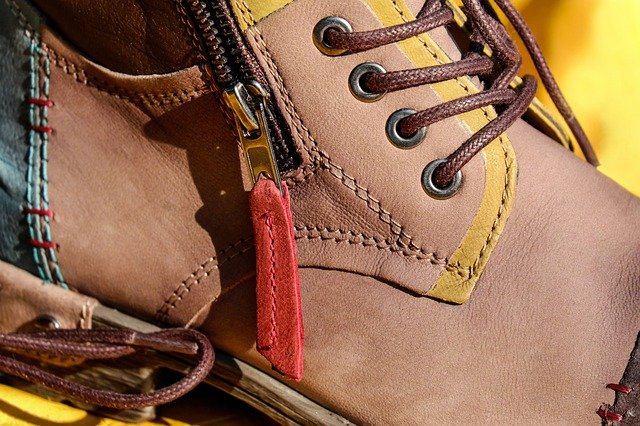Guide to Buying and Maintaining a Used Small Camper Trailer
Purchasing a used small camper trailer offers an affordable entry into the world of mobile recreation and travel. Whether you're seeking weekend getaways or extended road trips, understanding what to look for in a pre-owned unit can save you money and prevent future headaches. This guide walks you through the essential steps of evaluating condition, inspecting critical systems, negotiating fair pricing, and keeping your trailer road-ready for years to come.

Buying a used small camper trailer can be a rewarding investment for those looking to explore the outdoors without the steep cost of a brand-new unit. However, the process requires careful evaluation, thorough inspection, and a clear understanding of ongoing maintenance needs. This guide provides practical insights into making an informed purchase and ensuring your trailer remains reliable over time.
Assessing Condition, Ownership History and Service Records
Before committing to any used camper trailer, it’s essential to review its overall condition and history. Start by requesting maintenance records from the seller. These documents reveal how well the trailer has been cared for and whether routine services like brake adjustments, tire replacements, and seal inspections were performed on schedule. A well-documented history suggests responsible ownership and can indicate fewer hidden issues.
Ask about the number of previous owners and how the trailer was used. Units that spent most of their time in storage may have different wear patterns compared to those used frequently for cross-country travel. Look for signs of water damage, rust, or structural stress. Check the exterior for cracks, dents, or fading paint, and inspect the interior for stains, soft spots in flooring, or musty odors that could signal leaks. A transparent seller will provide honest answers and allow you to conduct a thorough inspection.
Evaluating Layouts, Floorplans and Essential Features
Small camper trailers come in various layouts, each designed to maximize space and functionality. Common configurations include rear kitchens, front sleeping areas, convertible dinettes, and compact bathrooms. Consider how you plan to use the trailer and which layout best suits your needs. Couples may prefer a queen-sized bed and minimal seating, while families might prioritize bunk beds and additional storage.
Essential features to evaluate include sleeping capacity, kitchen appliances, water storage, heating and cooling systems, and bathroom facilities. Check whether the stove, refrigerator, and water heater are functional and in good condition. Test all doors, windows, and latches to ensure they open and close smoothly. Assess the storage space for your gear and personal belongings. A well-designed floorplan can make a small trailer feel surprisingly spacious, while a poorly arranged interior can feel cramped and impractical.
Mechanical, Electrical and Structural Inspection Checklist
A comprehensive inspection is critical when purchasing a used camper trailer. Begin with the mechanical components. Examine the tires for tread depth, cracks, and age. Tires older than five to seven years should be replaced regardless of tread condition. Inspect the wheel bearings, brakes, and suspension system for wear or damage. Test the hitch and safety chains to ensure they meet current standards.
Electrical systems require careful attention. Check the battery condition, wiring integrity, and functionality of all lights, outlets, and appliances. Test the converter and inverter if equipped. Look for signs of corrosion or frayed wires that could pose safety hazards. On the structural side, inspect the frame for rust, cracks, or previous repairs. Check the roof for soft spots, missing sealant, or damaged vents. Examine the undercarriage for signs of water intrusion or rot in the floor joists. A moisture meter can help detect hidden leaks that aren’t immediately visible.
Pricing, Financing and Negotiation Strategies for Used Trailers
Understanding the market value of used small camper trailers is essential for negotiating a fair price. Prices vary widely based on age, brand, condition, features, and location. On average, used small camper trailers can range from $3,000 to $15,000 depending on these factors. Older models with minimal features may be available at the lower end, while newer units with modern amenities and low mileage command higher prices.
Research comparable listings in your area to establish a baseline. Websites specializing in recreational vehicles often provide pricing guides and historical sales data. When negotiating, use any identified issues or needed repairs as leverage. Be prepared to walk away if the seller is unwilling to adjust the price or address significant concerns. Financing options for used trailers include personal loans, RV-specific loans, and credit union financing. Interest rates and terms vary, so compare offers from multiple lenders before committing.
| Trailer Type | Typical Age Range | Average Cost Estimation |
|---|---|---|
| Basic Pop-Up | 10-15 years | $3,000 - $6,000 |
| Small Travel Trailer | 5-10 years | $8,000 - $12,000 |
| Teardrop Trailer | 3-8 years | $7,000 - $15,000 |
| Vintage Airstream | 20-40 years | $10,000 - $25,000 |
Prices, rates, or cost estimates mentioned in this article are based on the latest available information but may change over time. Independent research is advised before making financial decisions.
Maintenance, Common Repairs and Upgrades for Longevity
Regular maintenance is key to extending the life of your used camper trailer. Establish a routine schedule that includes inspecting and resealing the roof annually, checking tire pressure and bearings before each trip, and winterizing the plumbing system in colder climates. Clean and lubricate slide-out mechanisms, awning hardware, and door hinges to prevent wear and corrosion.
Common repairs for older trailers include replacing worn seals around windows and doors, fixing leaky faucets, repairing or replacing damaged flooring, and upgrading outdated appliances. Water damage is one of the most frequent and costly issues, so address any leaks immediately. Consider upgrades that enhance comfort and functionality, such as installing LED lighting, adding solar panels for off-grid power, or upgrading the mattress for better sleep quality. Investing in preventive maintenance and timely repairs will help you enjoy your trailer for many years.
Buying and maintaining a used small camper trailer requires diligence, but the rewards of affordable travel and outdoor adventure make the effort worthwhile. By thoroughly assessing condition and history, evaluating layouts and features, conducting detailed inspections, negotiating fair pricing, and committing to regular maintenance, you can secure a reliable and enjoyable mobile retreat. With proper care, your used trailer can provide countless memorable experiences on the road.



